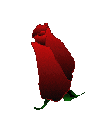
Freedom
ELSA M. GLOVER
We may think of the laws and customs of society, the laws of the state, and the laws of Nature as forming a type of wall around the actions of an individual. The individual may freely perform any actions which lie within the space inclosed by the wall, but if he chooses to try to go beyond the waII he finds bis actions restricted and bis powers to act diminished. Society may ostracize him, the state may fine him or otherwise curtail bis material power or may put him in jail, and breaking the laws of Nature may result in sickness or finding himself in an environment lacking resources or opportunities.
However, even one who stays within this wall of law may find that his Ego is not the sole ruler of his actions, his desires, and his thoughts. The physical, desire, and mental bodies frequently tend to respond to external stimuli rather than to the commands of the Ego. The mind tends to wander in the direction in which the mental currents flow over it. The feelings tend to take on the shade of the environment. Unless the Ego can muster enough strength to counterbalance these trends, one floats along in the stream of life, and is carried wherever the current flows.
Can the Ego assert itself, gain control of the bodies, and make the bodies act according to its commands? Yes, but it requires a conscious effort and constant vigilance. What should one do to help the Ego gain fuller control? First of alI, .one should recognize the causes of one's actions. He must distinguish between those acts which are responses to the environment and those which are directed by the Ego. Some acts, of course, will falI under both categories, but acts which are only '" responses to the environment and which are against the direction of the Ego should be particularly recognized.
Secondly, at least once a day, one should take time to shut out from his mind the clamoring and noise of the external world, and become inwardly quiet. The Ego at these times will be able to get its commands through to the bodies. One should also aim to carry this feeling of inner peace into everyday life so that eventually the Ego will be able to communicate constantly with its vehicles.
Thirdly, when a resolution is made it should be kept, unless found to be an error. If the resolution was to attain some goal, slowness or delays or repeated failures should not be allowed to weaken one's determination. If the resolution was to perform some tasks for the benefit of a person or of society, the gratitude or ingratitude that one receives should not influence one's actions.
The Ego cannot be expected to gain complete control in a short time, regardlless of how much effort is put into this task, because the physical, desire, and mental bodies do not have alI the necessary structure to make them completely responsive instruments of the Ego. However, repeated efforts of the Ego to maintain control will act as a driving force in producing the needed structure. For example, in the physical body the heart is being developed into a voluntary muscle. Eventually conscious control of the heart action will be possible, and it will be possible to control the portions of the brain to which the blood flows and thence completeIy to control the type of thoughts " engaged in.
Goethe wrote:
"Of all the bonds that hold the le world in chains,
Man frees himself when self-control he gains."
When the Ego can completely control the bodies, it will also be free from the illusion of separateness that the bodies have given it. Thence the Ego will feel a kinship with all mankind and, in fact, with all life, so that the Ego would not think of hanning another or doing anything detrimental to society as a whole. At this point the laws of society, of the state, and of Nature no longer act as restraints on the individual because the laws only tell him he may not do what he has no desire to do.
Attaining complete control over the bodies so that one is able to respond to hate with love, and to replace dishannony with hannony, also makes one capable of paying off debts of destiny so that eventually one becomes free of the necessity for rebirth.
The road to freedom appears paradoxical because one is told that to be free he must regulate himself many times more strictly than the law of the land or the laws of Nature do. But the resolution of the paradox is brought about if we keep in mind the nature of our true self. Too often we think of self in terms of the physical, desire, and mental bodies. But these are only temporary instruments of the Ego, which is the true self. It is the Ego, not its instruments, which is in search of freedom.
From RAYS FROM THE ROSE CROSS - January, 1971
The Rosicrucian Fellowship Magazine
|

Edited by Alexandre David
![]()